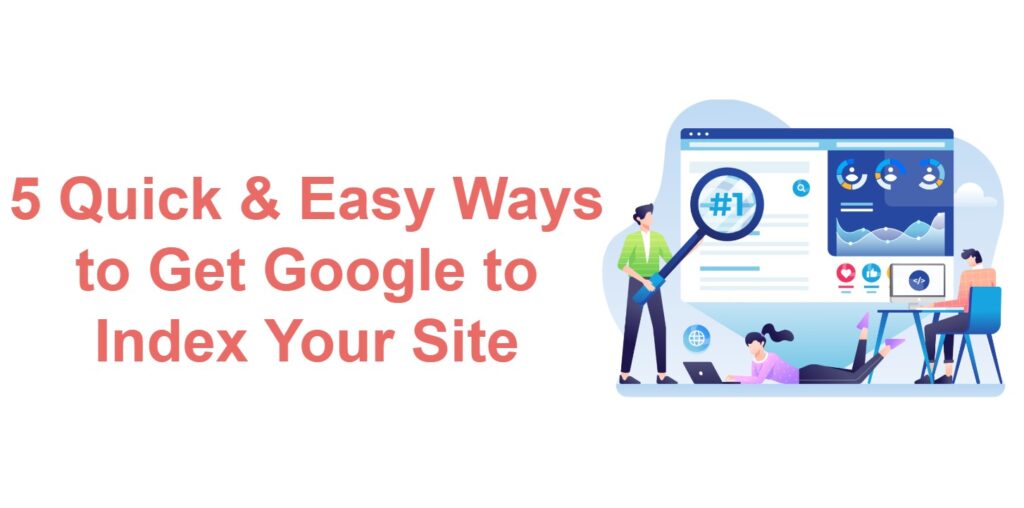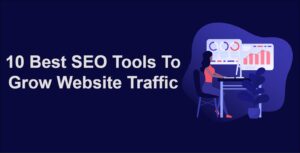Getting your website indexed by Google is a crucial step in ensuring its visibility on search engine results pages (SERPs). Without proper indexing, your website won’t appear in search results, making it challenging for users to discover your content. In this blog post, we’ll explore quick and easy ways to get Google to index your site efficiently, so you can start driving organic traffic and increasing your online presence.
Efficient indexing is the foundation of a successful SEO strategy. By implementing the quick and easy techniques outlined in this guide, you can ensure that your website’s content is discoverable by search engines and users alike.
Indexing is an ongoing process, and regularly monitoring, optimizing, and updating your site’s content will help you maintain a strong online presence and drive organic traffic to your website.
Understanding Indexing and Its Importance
Before we dive into the techniques, let’s first understand what indexing is and why it’s important for your website’s success.
1. What is Indexing?
Indexing is the process through which search engines like Google crawl and analyze the content of your website and add it to their database. This allows your website to appear in relevant search results when users search for specific keywords.
2. The Importance of Indexing
Proper indexing ensures that your website’s pages are eligible to appear in search results, driving organic traffic and potential leads. Without indexing, your website becomes invisible to search engines and users alike.
Quick & Easy Ways to Get Google to Index Your Site
Now, let’s explore effective techniques to quickly get Google to index your site and make your content accessible to a wider audience.
1. Create and Submit a Sitemap
A sitemap is a list of all the pages on your website that you want search engines to index. Generating a sitemap and submitting it to Google Search Console is a quick way to inform Google about your site’s structure and content.
2. Use Google Search Console
Google Search Console is a valuable tool for webmasters. It allows you to monitor your site’s performance, identify indexing issues, and request indexing for specific pages.
3. Fetch and Render
In Google Search Console, the “Fetch and Render” tool enables you to request Google to crawl and render specific pages. This can speed up the indexing process for important pages.
4. Internal Linking
Linking to new or less-indexed pages from existing well-indexed pages can encourage Google’s crawlers to discover and index them faster.
5. Share on Social Media
Sharing new content on social media platforms can attract user traffic and engagement, signaling Google that your content is valuable and should be indexed.
6. Generate Backlinks
Quality backlinks from reputable websites can expedite the indexing process. When search engines discover links to your site on established pages, they’re more likely to index your content.
7. Submit Individual URLs
If you have specific pages you want indexed quickly, you can use the Google Search Console’s “URL Inspection” tool to submit those URLs for indexing.
8. Keep Your Content Fresh
Regularly updating your website with fresh and relevant content can signal to search engines that your site is active and worth indexing.
Common Mistakes to Avoid
To ensure successful indexing, it’s important to avoid common mistakes that can hinder the process.
1. Blocking Crawlers
Using a “robots.txt” file to block search engine crawlers can prevent your website from being indexed. Review your robots.txt file to ensure you’re not unintentionally blocking indexing.
2. Duplicate Content
Having duplicate content across your site can confuse search engines and hinder indexing efforts. Ensure each page offers unique and valuable content.
3. Neglecting Mobile Optimization
With mobile-first indexing, a poor mobile experience can lead to slower indexing. Ensure your site is mobile-friendly and loads quickly on all devices.
Monitoring and Tracking Indexing Progress
Measuring the effectiveness of your indexing efforts is crucial for ongoing success.
1. Google Search Console
Regularly monitor the Google Search Console to track indexing progress, identify issues, and ensure there are no crawl errors.
2. Google Analytics
Use Google Analytics to analyze organic search traffic and identify which pages are receiving the most clicks and impressions.





